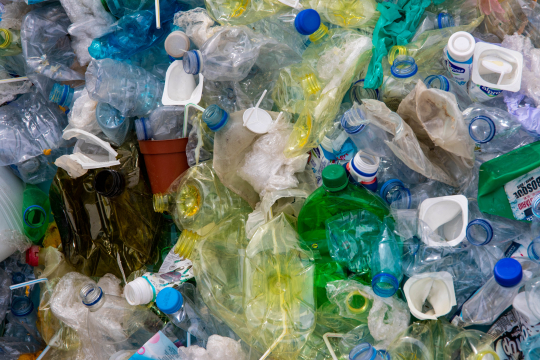A group of EfD researchers has written a report called A framework for selecting and designing policies to reduce marine plastic pollution in developing countries. The Global Plastic Action Partnership (GPAP) has now decided to use this report as a roadmap for policy design, initially in a pilot project with three countries.
Plastic waste management practices vary greatly among countries. The report focuses on the Global South. It serves as a tool for analyzing where along the impact pathway, that is, the life cycle of the plastic – production, consumption, and disposal – the most severe problems in a specific country are to be found and what those problems consist of. Based on that analysis, the report presents guidance as to what policy or rather set of policies will be most efficient.
The group was led by EfD Professor Francisco Alpizar, who will now also join the GPAP Advisory Committee and the World Economic Forum’s experts’ network.
Gives specific examples
“The report is designed with the functionality of an app in mind”, explains Francisco Alpizar. “The aim is that policymakers will be able to find out country-specific solutions.”
One feature of the report is that it presents several examples from different countries, that illustrate how different situations call for different solutions. For instance, the consumption of plastic is very low in a country like Tanzania, but most household waste is not properly collected. Rather than focusing on the consumption of plastics, Tanzania’s efforts should target waste collection in general. In Chile, about 99% of the plastic is properly collected, but recycling rates are very low. In such circumstances, the effort of policymakers should be on recycling. A policy like banning plastic bags will, according to Francisco Alpizar, hardly have any effect.
Starting with three pilot countries
The three countries in the pilot project called National Plastic Action Partnership (NPAP) are Vietnam, Indonesia, and Ghana. Several more countries have expressed their interest in joining the program.
“These are indeed exciting times! I’m really happy that my work will come to use in the interface between sea and land”, says Francisco Alpizar.
The researchers who have contributed to the report are: F. Alpizar, F. Carlsson, G. Lanza, B. Carney, R.C. Daniels, M. Jaime, T. Ho, Z. Nie, C. Salazar, B. Tibesigwa, S. Wahdera
They are all members of the CMaR collaborative network (Sustainable Management of Coastal Marine Resources), led by Francisco Alpizar.
Read the full report: A framework for selecting and designing policies to reduce marine plastic pollution in developing countries
By: Petra Hansson
